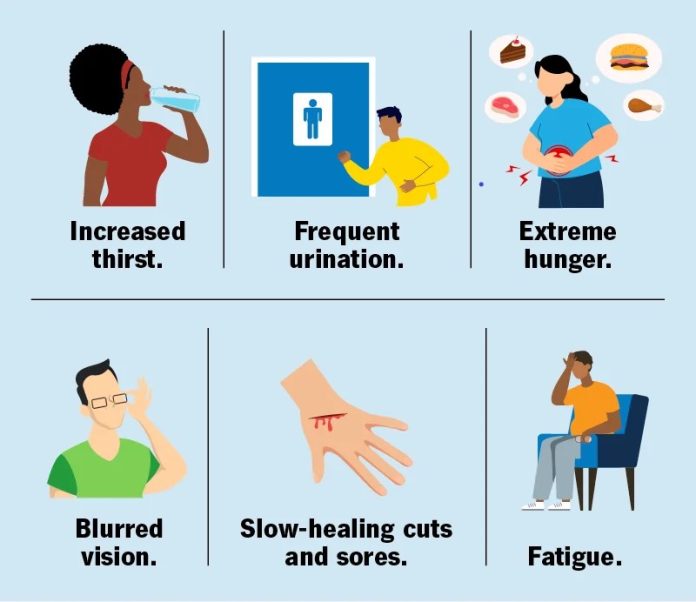High blood sugar levels (or hyperglycemia) are a symptom of diabetes mellitus, experts warn. They are also a precursor to the disease, which can be life-limiting. When you ingest sugar or any food high on the Glycemic Index (GI), your blood sugar levels quickly increase.
According to nutritionists, foods high in glycemic index include sugar and sugary foods, sugary soft drinks, white bread, potatoes and white rice. Avoid them as much as possible.
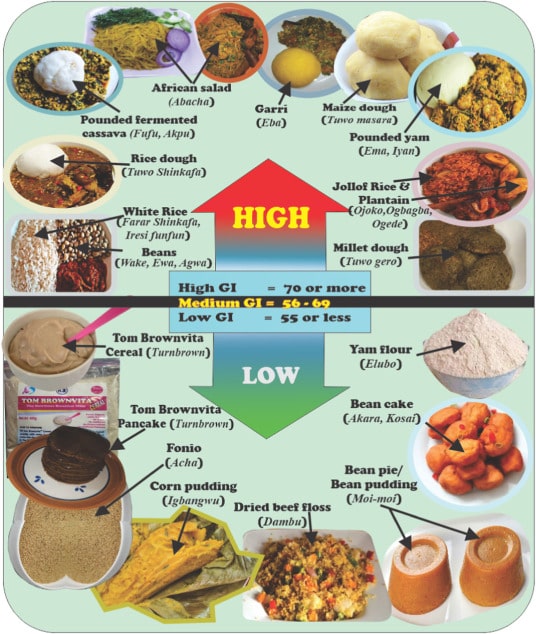
This is because, after eating such foods, sugar levels peak within 45 minutes. In a normal person, the blood sugar then begins to decrease. Within two hours, it’s back to normal levels.
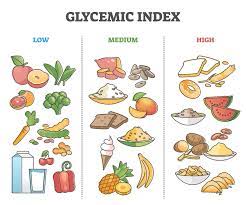
On the other hand, when you eat foods that are low on the GI, your blood sugar rises and stays level for an extended time before declining again. Such foods include some fruit and vegetables, pulses, wholegrain foods, such as porridge oats, akara, cashew nuts, okra, corn, unripe plantain, okpa, ofada rice, milk, tiger nuts, banana, etc. Eat more of them.
According to the Medical News Today, in a diabetic person, the blood sugar levels cannot be managed by the body and do not lower. These constant high blood sugar levels place an enormous strain on the organs and cells of the body; and after a prolonged period of not addressing high blood sugar levels, permanent damage is possible.
Studies suggest that many people have high blood sugar levels but aren’t even aware of it. They are a ticking time bomb because their bodies are becoming more and more damaged. If they aren’t aware of their condition, they won’t change their eating habits and seek help.
So, here are a few tips that tell you that your blood sugar level is high
1. Fatigue
 Extreme fatigue can be a symptom of high blood sugar levels. When you have too much glucose (sugar) in your blood, you will feel tired. Blood that contains a lot of sugar moves more slowly than blood with normal sugar levels. The circulation of blood around the body slows down. When this happens, organs and cells are not getting the oxygen that they need from the blood. This is what causes them long-term harm if high blood sugar levels are not treated.
Extreme fatigue can be a symptom of high blood sugar levels. When you have too much glucose (sugar) in your blood, you will feel tired. Blood that contains a lot of sugar moves more slowly than blood with normal sugar levels. The circulation of blood around the body slows down. When this happens, organs and cells are not getting the oxygen that they need from the blood. This is what causes them long-term harm if high blood sugar levels are not treated.
Fatigue may also be caused by low blood sugar levels. If there is not enough sugar in the blood, the body is not receiving enough energy. This will result in feelings of listlessness and exhaustion.
Blurred vision
 If you experience an onset of blurred vision, it could be because you have high blood sugar levels. High blood sugar levels that do not decrease cause the eye’s lens to swell up, which can do permanent damage and affect eyesight if not treated.
If you experience an onset of blurred vision, it could be because you have high blood sugar levels. High blood sugar levels that do not decrease cause the eye’s lens to swell up, which can do permanent damage and affect eyesight if not treated.
Another cause of blurred vision that can be brought on by high blood sugar levels is glaucoma. The National Eye Institute suggests that adults with diabetes are twice as likely to get glaucoma than non-diabetics.
High blood sugar levels may also be indicated by the development of cataracts. Diabetes brings forward the onset of cataracts. Cataracts cause blurry vision, faded colors, double vision in the affected eye, and sensitivity to light.
Headaches
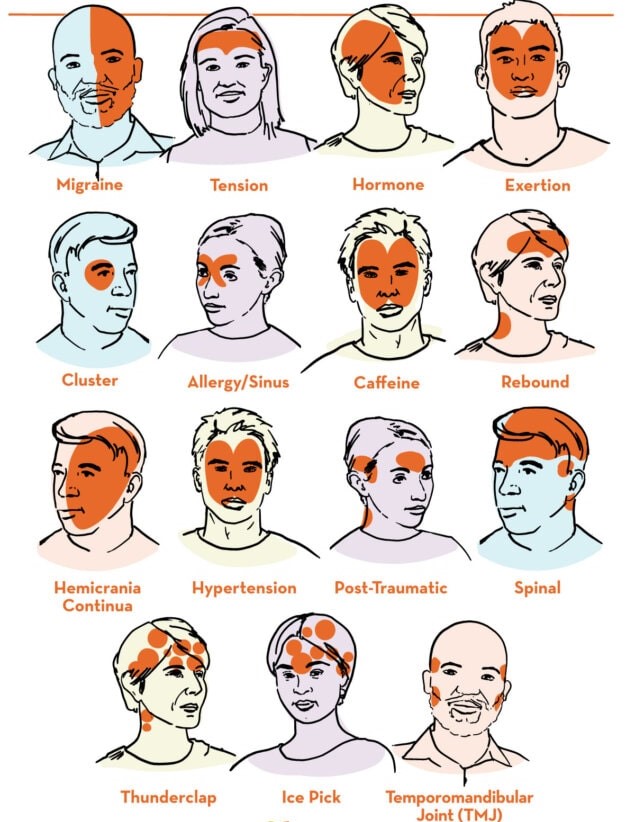
Headaches are common among people with high blood sugar. They take several days to develop and can last for a while. This is one of the earliest signs that something is wrong with your blood sugar levels. It’s not the sugar that causes a headache as such. It’s the changes in the sugar levels that does it. As the condition worsens and no treatment is used to intervene, the headache will become worse.
A headache is a warning that your blood sugar levels are out of sync. The more your blood sugar levels fluctuate, the more frequently you’ll experience headaches.
Treatment of headaches such as those brought on by high blood sugar typically includes over-the-counter medicines. Other triggers such as caffeine and stress should be avoided too. It’s however important to remember that not all headaches are triggered by blood sugar levels.
More frequent trips to the bathroom

You may need to urinate more often than usual. This is a common sign of high blood sugar levels. This symptom of high blood sugar levels is called polyuria.
In classic cases of polyuria, you may pass as much as three liters of urine in a 24-hour period. The average adult passes 1-2 liters of urine in that time. If you start experiencing what you think is polyuria, get your blood sugar levels tested as soon as you can.
Insatiable thirst
 Excessive thirst is called polydipsia. It is also an indicator that your blood sugar levels may be too high. As a result of polydipsia, people experience polyuria, as the water they drink must be expelled from the body. Once the urine has been expelled from the body, it must protect itself from dehydration. So, you will feel the need to drink fluids. The more trips you take to the bathroom, the more fluids you’ll want to drink.
Excessive thirst is called polydipsia. It is also an indicator that your blood sugar levels may be too high. As a result of polydipsia, people experience polyuria, as the water they drink must be expelled from the body. Once the urine has been expelled from the body, it must protect itself from dehydration. So, you will feel the need to drink fluids. The more trips you take to the bathroom, the more fluids you’ll want to drink.
On the face of it, drinking a lot of water may sound like a good idea. But like most things, too much water can be a bad thing. It upsets the delicate chemical balance in your body. It dilutes the blood. This can lead to you having too little sodium in your blood and too much water inside and around the cells of the body. This is called hyponatremia. Hyponatremia brings with it headaches, muscle cramps, nausea, fatigue, and seizures. Left untreated, hyponatremia gets worse. It can result in a coma or death.
If you find yourself wanting to drink water all the time and drinking far more than usual, consult your doctor. Your body is trying to tell you something, such as your blood sugar levels are too high.
Your mouth feels dry all the time
Dry mouth or xerostomia. It is a common sign of high blood sugar levels and diabetes. It is advisable Dry mouth makes talking, chewing, and swallowing difficult because saliva is needed for these functions.

Shortness of breath
Shortness of breath is related to very high blood sugar levels. It is a sign that your blood sugar levels have been at a high level for quite some time already. If you do not treat your high blood sugar levels, you can experience ketoacidosis, commonly known as a diabetic coma.
If you experience the symptoms of ketoacidosis of which shortness of breath is one, see your doctor.
Difficulty concentrating or remembering things
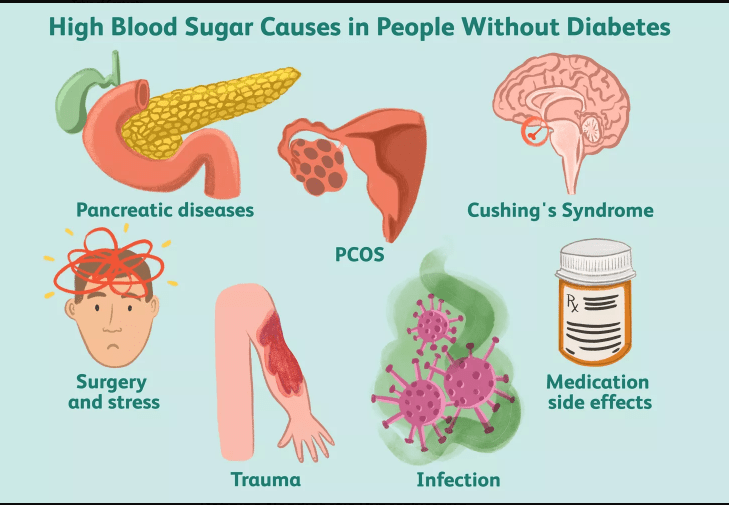 Your memory, clarity of thought, and ability to concentrate are functions that your brain controls. The parts of the brain that control these functions may be affected by prolonged high blood sugar levels. Your body is struggling to produce energy because it cannot absorb the glucose in the bloodstream. This lack of energy production affects different parts of the body. The brain is no exception. In an effort to keep other parts of the brain and body functioning, some parts may be deprived of energy. If the parts of your brain that control memory and concentration do not receive enough energy, they cannot function optimally.
Your memory, clarity of thought, and ability to concentrate are functions that your brain controls. The parts of the brain that control these functions may be affected by prolonged high blood sugar levels. Your body is struggling to produce energy because it cannot absorb the glucose in the bloodstream. This lack of energy production affects different parts of the body. The brain is no exception. In an effort to keep other parts of the brain and body functioning, some parts may be deprived of energy. If the parts of your brain that control memory and concentration do not receive enough energy, they cannot function optimally.
Slow healing of cuts and wounds
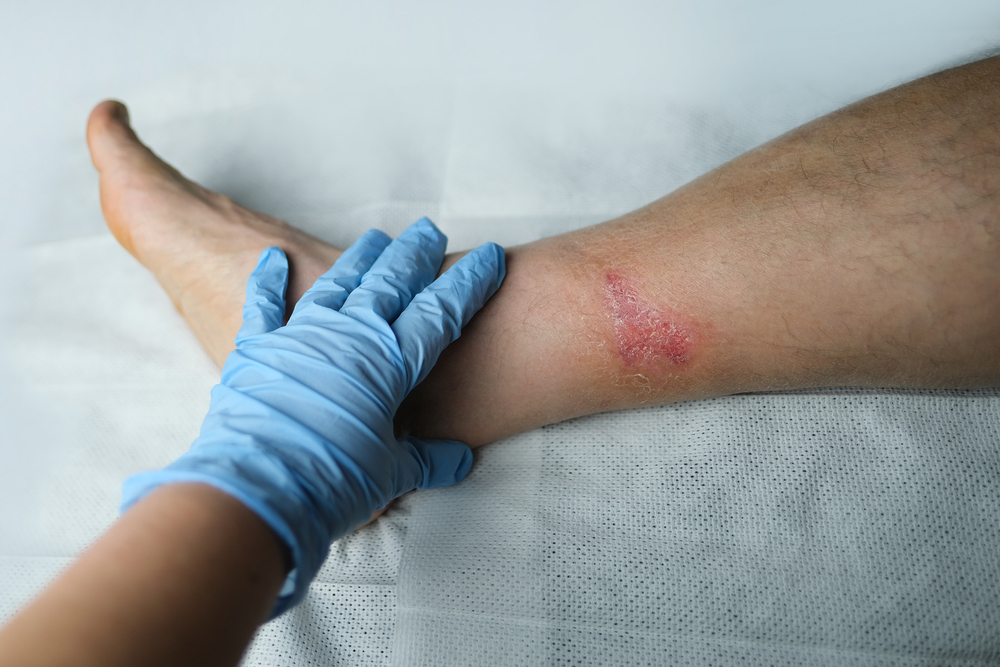
When cuts and wounds don’t heal, it can be a sign of sustained high blood sugar levels. High blood sugar levels can cause a condition called neuropathy. This is nerve damage caused by too much glucose in the blood. This causes blood circulation problems. The healing processes are slowed down if the body cannot deliver what is required for healing to the site of the wound.
Recurrent infections
High blood sugar levels affect how your immune system works. The inflammation in the cells from too much glucose in the blood prevents oxygen and the necessary defense cells from reaching the infection. Since the soldiers can’t reach the battlefield, the enemy has time to take hold and spread its control. In wounds, this can lead to fungal infections such as gangrene taking hold, resulting in amputations.
Dry, itchy skin
Itching is a common diabetes symptom, and diabetes is associated with high blood sugar levels. People with diabetes are more likely to experience itching skin than those who don’t have it. If you have high blood sugar levels or suspect you might, do not ignore your itchy skin. Left untreated, high blood sugar levels are dangerous, and the damage done to your skin from the itching could be serious.
If itchy skin is the result of high blood sugar levels, management of the condition through diet or medications will ease the itching.
Numbness or pain in your extremities
Poor circulation affects your hands and fingers more than any other body parts. The consequences of numbness in the extremities due to high blood sugar levels can be dire. You could get a small cut or scratch on your foot and not even be aware of it. The fact that your immune system may be deficient due to the high blood sugar levels means that healing will be delayed or won’t occur at all.
Impotence or infertility
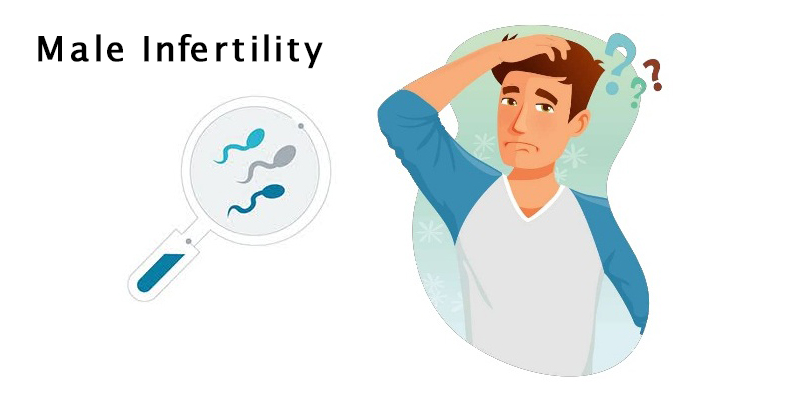 Men with high blood sugar levels often experience erectile dysfunction. This is a very sensitive subject, which most men won’t broach. But if you have developed this problem, you need to see your doctor for advice. High blood sugar levels thicken the blood and damage the blood vessels. This can affect the blood supply to the penis and affect the ability to obtain and sustain an erection. This can be frustrating for the man and his partner.
Men with high blood sugar levels often experience erectile dysfunction. This is a very sensitive subject, which most men won’t broach. But if you have developed this problem, you need to see your doctor for advice. High blood sugar levels thicken the blood and damage the blood vessels. This can affect the blood supply to the penis and affect the ability to obtain and sustain an erection. This can be frustrating for the man and his partner.
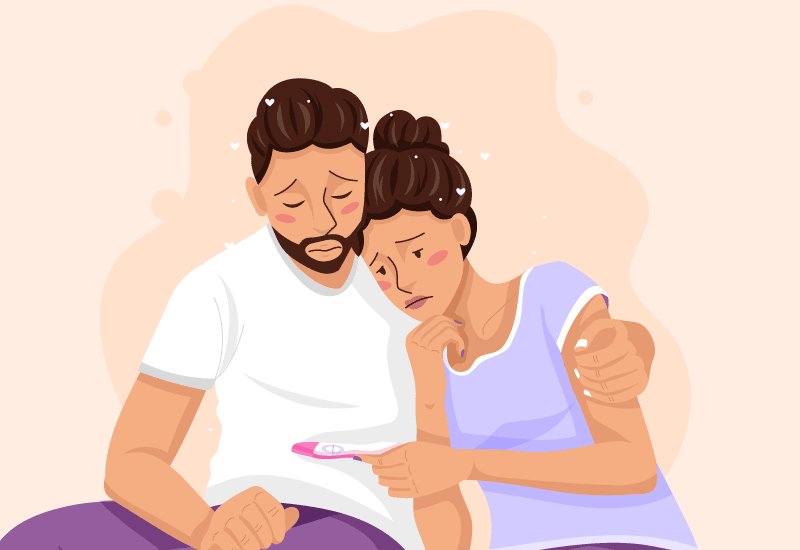 For women, high blood sugar levels can affect their chances of falling pregnant. High sugar levels affect hormone levels in the body. Any disruption to the delicate balance of hormones in the body can prevent pregnancy. After prolonged high blood sugar levels, the body may develop insulin resistance. This will affect her body’s ability to ovulate. It also affects the ability of the egg to attach to the uterus after fertilization. Women with high blood sugar levels are also vulnerable to yeast infections which can prevent the sperm from reaching the egg.
For women, high blood sugar levels can affect their chances of falling pregnant. High sugar levels affect hormone levels in the body. Any disruption to the delicate balance of hormones in the body can prevent pregnancy. After prolonged high blood sugar levels, the body may develop insulin resistance. This will affect her body’s ability to ovulate. It also affects the ability of the egg to attach to the uterus after fertilization. Women with high blood sugar levels are also vulnerable to yeast infections which can prevent the sperm from reaching the egg.

